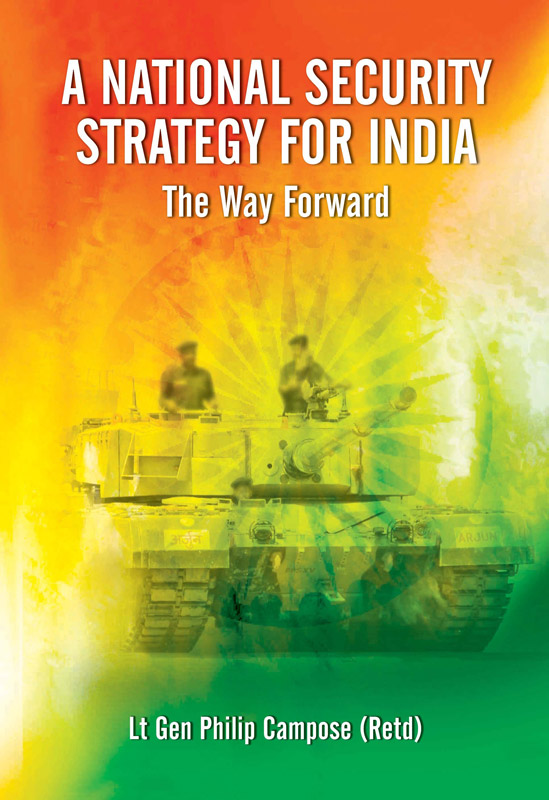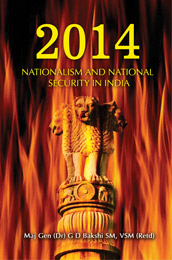Subjects
Recent View(s)
- Rethinking Energy Security in India
- The Next Arms Race
- China’s Aerospace Strategy
- Quest for Space: The Indian Connect
- Information Technology: A Finance Professional's Perspective
- A National Security Strategy for India: The Way Forward
- Avyakta (Hindi)
- China’s Assertive Posturing in the Indo-Pacific & Prospects for Indo-ASEAN Collaboration
A National Security Strategy for India: The Way Forward
Philip Campose
This book enunciates a possible National Security Strategy for India, as part of a grand strategy, in which India aims at achieving its purported aspiration of becoming “a regional power by 2030” and a “major global power by 2050”. The book emphasizes that, other than ‘hard’ power to deal with external threats, the country needs to develop economically, and achieve its purported political and developmental goals and objectives.
Corresponding to the five national security objectives which need to be achieved, the enunciated strategy in this book, recommends in five parts, the ways and means to address internal security threats, including insurgency and terrorism, that India faces in the current and future perspective, as well as non-traditional threats, relating to energy and water shortages, pandemics, human security, and shortfalls in the criminal justice system. Significant focus needs to be laid on timely military modernization which would play an important role in India achieving its legitimate security and aspirational goals.
The author has contextually visualized the regional and global security environment as well as elucidated in detail, the threats and challenges that India faces, in the current and future perspective. Most importantly, the book helps understand the criticality and plausibility of India achieving its long-term national goals and objectives, amid all the opportunities that it is being presented with, provided that the strategy is acted upon, more-so in a timely manner.


 Political Science
Political Science



